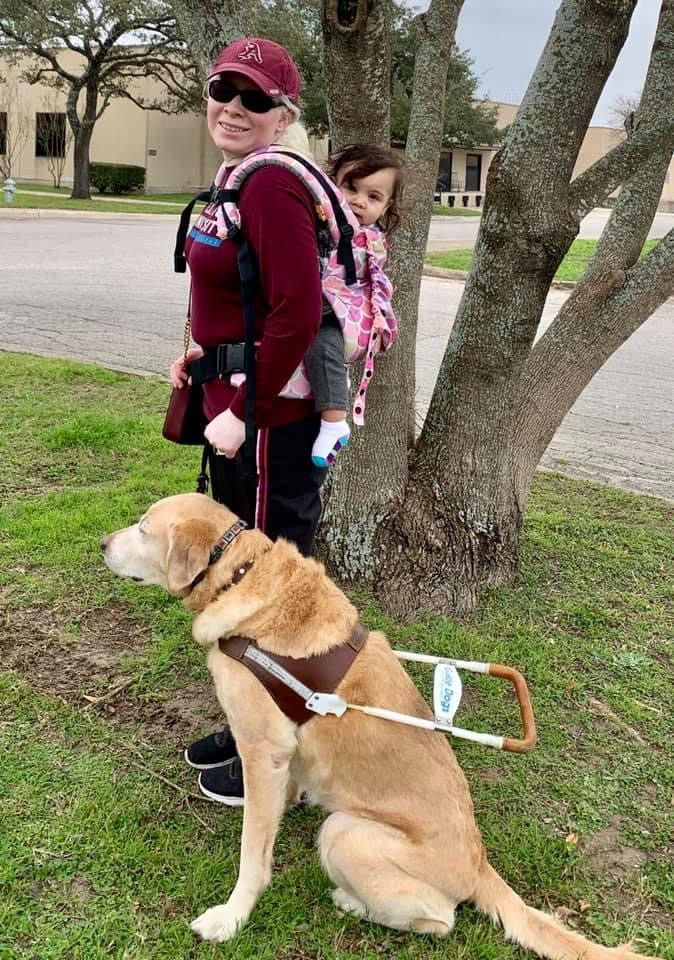GDB Alumna, Melissa Padron, recently sounded the alarm when she and her guide dog, Cameo, were refused service with a driver of a popular ride share company. Despite her attempts to educate the driver of her rights under the Americans with Disabilities Act (ADA), the driver still refused. When Melissa’s story was shared on her local news station, GDB alumni from across North America weighed in with their own experiences of being discriminated against by ride share drivers because of their guide dogs.
"I actually had a driver who insisted that Hominy go into the trunk!” says GDB Alumna Sharon Ruttan of her guide dog. “It was a van and he wanted her in the cargo portion. I told him that she was a guide dog and she rides in the van not the ‘trunk’! Then when he dropped me off at my location, he left us in the middle of the street, nowhere near the curb."
“I used to use rideshares all the time- like gold star status,” says GDB Alum Monique Fenton. “I use it only as an absolute last resort right now. And if I do have to use it, I’m less likely to take Boris with me, which defeats the purpose of having a guide dog, I feel. I get so anxious when I know I have to use a rideshare that I panic and can’t sleep the night before. It’s absurd. So if it is a place I have been many times before and I feel comfortable, I will let Boris have a vacation day and use my cane. I would have to see some SERIOUS changes to be comfortable using rideshare all the time again.”
Denying a guide dog user access to a rideshare is illegal under federal law. It is essential to document and report all incidents of discrimination in order to hold the companies accountable to their drivers’ actions. Recent lawsuit settlements over similar patterns of behavior require major rideshare companies to educate their employees on the rights of service dog users under the Americans with Disabilities Act and how to handle alleged violations.
“Ridesharing are public transportation services and as such are covered by the ADA,” says Rabih Dow, Director of Outreach and Advocacy at Guide Dogs for the Blind. “If you are discriminated against by a rideshare please file a complaint right away with the company, and document your experience with the National Federation of the Blind (NFB) which is gathering data for monitoring. Contact GDB if you need help getting the link or phone number for your ridesharing company”
Click here to access the NFB rideshare survey.
For more information about access laws for guide dogs, please visit the Access and Etiquette section of our website.




